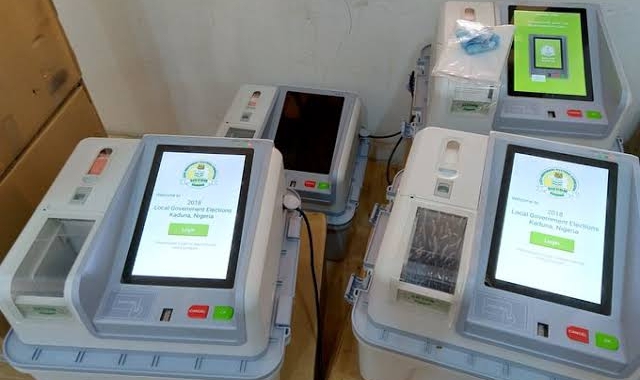INEC announces plan to use body odour for voter verification
2 min read
BVAS--- Biomodal Verification Accreditation System
The Independent National Electoral Commission, INEC, has revealed plans to introduce new technology into Nigeria’s electoral process.
Professor Mahmood Yakubu, chairman of INEC said this while speaking on Tuesday at the Chatham House in London.
He stated that in the foreseeable future, the electoral umpire would adopt the use of body odour for voter verification.
Earlier, the commission used to verify voters by simply looking at their paper cards and checking the voter register.
In 2012, INEC introduced the Smart Card Readers (SCR) to verify the Permanent Voter Cards which contained the facials of voters. It also used the Automated Facial Identification System AFIS to clean up the voter register.
However, for the 2023 polls, the electoral umpire went a step further to introduce the Bimodal Voter Accreditation System (BVAS), which verifies both the facials and the fingerprints.
This development also entailed INEC using the Automated Biometric Identification System ABIS.
Yakubu hailed the commission’s in-house engineers for the design of the BVAS and for always coming up with innovative ideas and designs to enhance the electoral process.
According to him, an engineer at the commission had proposed using body odour to verify voters but that he had to ask them to tarry awhile.
Yakubu said, “The clean up of the register was painstakingly conducted by the commission because of the Automated Biometric Identification System ABIS. Before now, the commission used the AFIS, the fingerprint identification system but this time around, we used the ABIS, meaning both fingerprint and facial, and that is what we are also using to accredit voters on election day.
“All these innovations were all the work of INEC’s own in-house engineers in the commission. The machines may have been fabricated outside the country but the design of the machines were done by our own engineers in-house.
“In fact, one of them said they were going to introduce a new biometric using body odour. I said, ‘please, not yet. Let’s make haste slowly. But when he explained it to me, it sounded logical. He said, don’t laugh, chairman, because I said body odour is also biometric. He said, how does your dog recognize you? It is from your body odour and that is why if another person walks into the house it barks, when you move into the house, it wags its tail because it recognizes your body odour. I said, ‘but for elections let’s wait, not now’ .”

